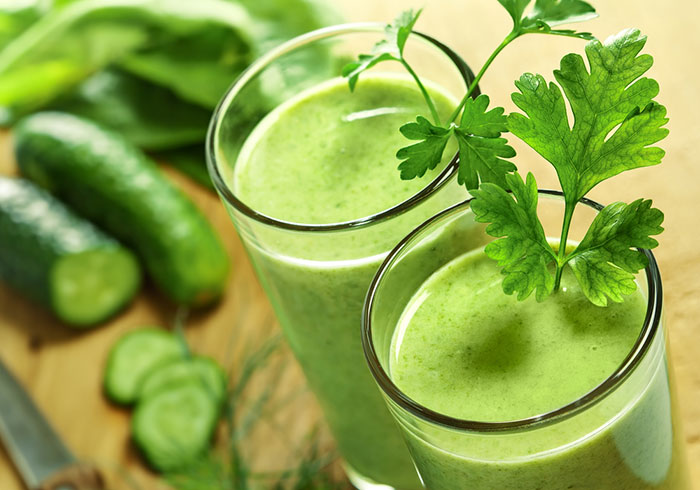Oil is an essential ingredient in skin care products, and it is especially important to use it in organic skin care. Organic skin care products have been shown to be more effective and have better results than their unorganic counterparts. The oil in these products helps to protect the skin from the elements and provides a healthy balance of vitamins and minerals.
Introduction to the Relationship Between Diet and Skin Care
The relationship between diet and skin care has been the subject of extensive research over the years. While various factors influence your overall skin health, a balanced diet comprising essential nutrients is crucial for maintaining healthy and glowing skin. Incorporating certain foods in your diet can help combat common skin issues like acne, dryness, and premature aging.
One crucial ingredient that plays a significant role in promoting healthy skin is oil. Oils contain essential fatty acids that hydrate the skin from within, lock in moisture, and boost its natural barrier function. They also contain antioxidants that help fight off free radicals responsible for damaging the skin cells. Some of the best oils to include in your diet include olive oil, coconut oil, flaxseed oil, and avocado oil.
However, it’s worth noting that consuming too much oily or greasy food can have adverse effects on your skin. Excess consumption of fried foods or processed snacks high in unhealthy fats can lead to inflammation and breakouts on the face and body. Therefore it’s important to maintain a balance by incorporating healthy oils into your diet while limiting intake of unhealthy fats.
Also Read: WellHealthOrganic.com: Weight Loss in Monsoon – These 5 Monsoon Fruits Can Help You Lose Weight
Importance of Essential Oils in Skin Care
Essential oils have been used for centuries for their healing properties, and they are now becoming a popular ingredient in skin care products. These oils have numerous benefits to the skin, including nourishing and moisturizing the skin, protecting it from environmental damage and reducing inflammation. Lavender essential oil has anti-inflammatory properties that make it ideal for treating acne-prone skin.
Tea tree oil is another powerful essential oil that has antibacterial and antifungal properties. It is often used as an effective treatment for acne and other fungal infections such as athlete’s foot. Frankincense oil is also excellent for skincare due to its ability to reduce wrinkles, scars and fine lines while improving the elasticity of the skin.
Incorporating essential oils into your skincare routine can be a game-changer when it comes to achieving healthy-looking skin. However, it’s important to note that some essential oils can be irritating to certain individuals or cause allergic reactions. Therefore, before using any new product containing essential oils on your face or body, always patch test first and consult with a dermatologist if you experience any adverse effects.
Coconut Oil: The Versatile Skin Care Hero
Coconut oil is a versatile ingredient that has become increasingly popular in the skincare industry. Due to its high levels of Lauric acid, it has antibacterial and anti-inflammatory properties which make it an excellent choice for treating skin conditions such as acne and eczema. It also helps to lock in moisture, making it a great natural moisturizer for those with dry skin.
In addition to being an effective skincare product on its own, coconut oil can be used as a base ingredient in DIY beauty products such as body scrubs and face masks. Its versatility extends beyond just personal care, too – it can be used as a makeup remover or even as a natural shaving cream.
Coconut oil is also gentle enough to use on babies’ delicate skin, making it a safe alternative to chemical-laden baby products. With so many benefits for the skin and hair, incorporating coconut oil into your daily routine is a no-brainer.
Also Read: WellHealthOrganic.com: If You Are Troubled by Snoring, Then Know Home Remedies to Deal with Snoring
Jojoba Oil: The Non-Greasy Moisturizer
Jojoba oil is a versatile and popular ingredient in skin care products due to its many benefits. This natural, plant-based oil is extracted from the seeds of the jojoba plant and is known for being non-greasy, making it an excellent moisturizer for all skin types. Unlike other oils that can leave a heavy residue on the skin’s surface, jojoba oil absorbs quickly into the skin without leaving any greasy or oily feeling.
In addition to its moisturizing properties, jojoba oil also has anti-inflammatory and antibacterial qualities. These properties make it an effective treatment for acne-prone skin as well as other inflammatory skin conditions such as eczema or psoriasis. Jojoba oil can also help regulate sebum production in the skin, which can reduce excess oiliness and prevent clogged pores.
Overall, incorporating jojoba oil into your skincare routine can provide numerous benefits for your skin’s health and appearance. Whether you have dry, oily or combination skin type, using products with jojoba oil can help keep your complexion hydrated and balanced while avoiding any unwanted greasiness or heaviness on your face.
Tea Tree Oil: The Antimicrobial and Acne-Fighting Oil
Tea tree oil is a powerful essential oil that has been used for centuries due to its antimicrobial properties. It is extracted from the leaves of Melaleuca alternifolia, a tree native to Australia. The oil contains several compounds that are known for their antibacterial, antiviral, and anti-inflammatory properties. These properties make tea tree oil an effective natural remedy for acne-prone skin.
Acne is a common skin condition that affects millions of people worldwide. It occurs when hair follicles become clogged with dead skin cells and oils, leading to the formation of pimples, blackheads, and whiteheads. Tea tree oil can help treat acne by reducing inflammation, killing bacteria on the skin’s surface, and regulating sebum production. Research has shown that applying tea tree oil topically can be just as effective as benzoyl peroxide in treating mild to moderate acne.
In addition to its acne-fighting abilities, tea tree oil can also be used to treat other skin conditions such as eczema and psoriasis due to its potent antimicrobial properties. When incorporated into your skincare routine correctly, tea tree oil can improve your overall complexion while promoting healthy and clear-looking skin naturally.
Also Read: 10 Benefits of Eating Roasted Gram for Your Health
Lavender Oil: The Soothing and Calming Oil
Lavender oil is a versatile essential oil that has been used for centuries for its soothing and calming properties. It’s extracted from the flowers of the lavender plant, which are known for their beautiful purple color and sweet fragrance. One of the main benefits of lavender oil is its ability to promote relaxation and reduce stress levels. This makes it a popular choice for aromatherapy treatments and massage therapy.
In addition to promoting relaxation, lavender oil is also beneficial for skin care. It has natural antibacterial properties that can help to prevent acne breakouts, as well as antifungal properties that can help to soothe skin irritations such as eczema or psoriasis. Lavender oil can also be used to improve the appearance of aging skin by reducing fine lines and wrinkles.
Overall, incorporating lavender oil into your skincare routine can have numerous benefits for both your physical and mental health. Whether you’re looking to relax after a long day or improve your complexion, this calming essential oil is definitely worth trying out!
Rosehip Oil: The Anti-Aging and Skin Brightening Oil
Rosehip oil is an essential ingredient for excellent skin care. It is a natural oil that comes from the seeds of wild rose bushes. The oil has been used for centuries to treat various skin conditions, and recently it has become popular due to its anti-aging and skin brightening benefits.
Rosehip oil is packed with antioxidants, vitamins A, C, and E, which help to protect the skin from free radicals that cause premature aging. The oil also contains essential fatty acids like Omega 3 and 6 which help to strengthen the skin barrier and lock in moisture. This makes it an ideal ingredient for those with dry or mature skin.
Additionally, rosehip oil helps to brighten dull skin by promoting cell turnover and reducing hyperpigmentation. Its high vitamin C content helps to boost collagen production leading to firmer-looking skin. Regular use of rosehip oil can improve overall texture, reduce fine lines, wrinkles and leave your complexion glowing!
Incorporating Oils into Your Skin Care Routine
When it comes to taking care of your skin, incorporating oils into your daily routine can be a game changer. Oils are packed with nourishing and moisturizing properties that can help improve the appearance and health of your skin. One way to incorporate oils into your routine is by using them as a facial cleanser or makeup remover. Simply apply a small amount of oil onto a cotton pad and gently massage it onto your face in circular motions, then wipe away any dirt or makeup residue.
Another way to use oils is by adding them to your moisturizer or serum. This can help boost the hydrating properties of these products while also providing additional benefits such as anti-aging or brightening effects. Some popular oils for this include jojoba oil, rosehip oil, and argan oil. It’s important to choose an oil that works well with your specific skin type and concerns.
Overall, incorporating oils into your skincare routine can help improve the overall health and appearance of your skin by providing hydration, nourishment, and additional benefits such as anti-aging properties. Experiment with different types of oils to find what works best for you and don’t be afraid to mix them into other products for added benefits!
Other Foods for Excellent Skin Care
In addition to oils, there are other foods that can contribute to excellent skin care. One such food is berries, which are packed with antioxidants that help protect the skin against damage from free radicals. These free radicals can cause premature aging and wrinkles, so adding berries like blueberries or strawberries to your diet can help keep your skin looking youthful.
Another food that is great for skin care is leafy green vegetables, such as kale or spinach. These vegetables contain high levels of vitamins A and C, both of which are essential for healthy skin. Vitamin A helps promote cell turnover and collagen production, while vitamin C supports the production of elastin fibers in the skin.
Finally, nuts and seeds are also important for maintaining healthy skin. They are rich in healthy fats and essential nutrients like zinc and vitamin E, which work together to nourish the skin from within. Incorporating almonds or chia seeds into your diet can improve the overall appearance of your complexion and reduce inflammation in the body.
Conclusion and Final Thoughts on Diet and Skin Care
In conclusion, it is clear that our diet plays a vital role in maintaining healthy skin. Oils, in particular, are an essential ingredient for excellent skin care. From nourishing and moisturizing the skin to protecting it from environmental damage and promoting collagen production, oils have numerous benefits for our skin.
However, it is important to note that not all oils are created equal. While some can work wonders for our skin, others can clog pores and lead to breakouts. Therefore, it is crucial to do your research and choose the right oils for your specific skin type.
Overall, incorporating a well-balanced diet and using natural oils as part of your skincare routine can do wonders for achieving healthy and glowing skin. Remember to listen to your body’s needs and make adjustments accordingly to achieve the best results possible.
FAQ’s
Q: Will applying oil to my skin make it more oily?
A: Not necessarily. In fact, some oils can actually help balance your skin’s natural oil production. For example, jojoba oil is a popular ingredient in skincare products because it closely resembles the sebum that our skin naturally produces. Using an oil-based product can also help lock in moisture and protect your skin from environmental stressors.
Q: Can I use any type of oil on my face?
A: It depends on your specific skin type and concerns. Some oils such as coconut oil can be comedogenic (pore-clogging) for some people, while others may find it beneficial for their dry skin. It’s important to do research and patch test new products before incorporating them into your routine.
Q: How often should I apply an oil-based product to my face?
A: This will vary based on the product and your individual needs. Some people may benefit from using an oil-based serum or moisturizer daily, while others may only need to use it once or twice a week. It’s important to pay attention to how your skin reacts and adjust accordingly.




